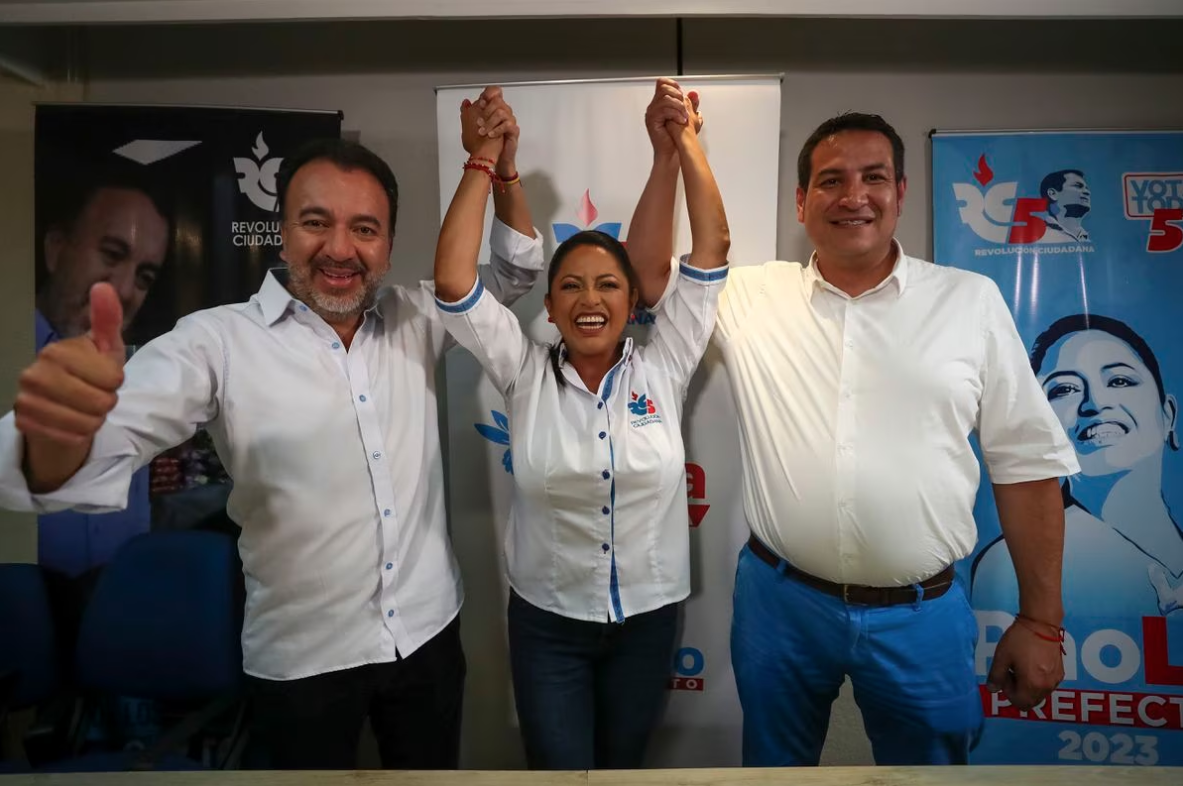On February 5 took place in Ecuador elections consistent with a phenomenon Latin America has been experiencing in the last decade. These elections included regional and local votes, those of the councilors for the Council for Citizen Participation and Social Control (CPCCS), the referendum to reform some articles of the Constitution, and a popular consultation to determine whether a parish should be cantonized.
In other words, there were advantages of several candidates with tight results, atomization of the most representative political forces, and fragmentation of ideological tendencies. In fact, disenchantment with politics was not a new fact, however, it was expressed in high percentages of null votes, blank votes, and absenteeism. In some cases, the sum of these types of votes exceeded those of the elected authorities. The electoral campaign was short since it lasted one month and was characterized by sensationalism, politics taken to TikTok, and the message viralized by social networks to compete for the attention of those undecided.
Despite the cultural and regional diversity of each province in the highlands, the coast, and the Amazon, the citizens’ demands revolved around the same problems: the fight against insecurity, unemployment, and the lack of medical attention and medicines in the public health system; as well as in the municipal centers that provide this service. These elections set up an electoral scenario with a view to 2025 since the prefectures and mayors’ offices are now becoming platforms of support for the candidacies that want to win the Presidency and the National Assembly.
Fragmentation and legitimacy crisis
Ecuador’s local elections were characterized by fragmentation and a crisis of legitimacy. The main cities (due to their population size, economy, and political representation), i.e. Quito and Cuenca in the highlands, and Guayaquil on the coast, had an excessive number of candidates. And those who won mayoral elections did not exceed 40% of the vote. In the capital of the republic, the candidate of Correism, Pabel Muñoz, won with 25% out of 12 competitors; the mayor of Cuenca (for the Democratic Left), Christian Zamora, won with 18% out of 9 candidates, while in Guayaquil, the Citizen Revolution’s candidate, Aquiles Alvarez, triumphed with 39% out of 11 contenders.
The meager advantages of the elected authorities in the cities of Quito and Cuenca represent major challenges since the composition of the Municipal Council of the capital will include five political forces. In this sense, the new mayor does not have any majority, which requires him to negotiate with the council representatives in order to enjoy governance in terms of legislation and oversight, as well as in terms of budget approval and investment priority. For the second time in a row, this municipal administration begins with fragmentation and with 75% of voters not choosing the elected authority. It is the second time that Correism (in 16 years) wins the elections, but does not surpass its electoral ceiling.
In Ecuador, elections are mandatory and those who do not vote are penalized. In the case of Quito, the absenteeism was remarkable (17.32%), even more, the null vote (13.77%), while the blank vote was 3.22%. In sum, these three types of votes exceeded the vote for the winning candidacy, which was only 2.98% ahead of the second and 3.21% ahead of the third. As in previous elections, two candidates coming from the matrix supporting Correa came first and second, a phenomenon that also occurred in other cities, where the parties were atomized from within.
The electoral map in Ecuador, as far as prefectures are concerned, put on the board a country with a historical cleavage, where the right wing, represented by the Social Christian Party (PSC), shares the lead in the Coast with Correism. The former won three prefectures, while the latter won only one and the most important one, Guayas. In the case of the Sierra, the indigenous movement Pachakutik won in the central provinces from where the national mobilization is being developed, and the rest of the country remained in the local political organizations. In general, Correism won 9 prefectures and 61 mayoralties; PSC won three prefectures and 32 mayoralties; Pachakutik, 6 prefectures, and 11 mayoralties. These three political forces are oiling their electoral machinery for the 2025 general elections.
A referendum with “NO” flavor
A separate chapter deserves the results of the referendum sponsored by the Government since Guillermo Lasso bet his meager political capital on the popular consultation since he did not put candidates for local authorities. This strategy was postponed by the President since it was foreseen at the beginning of his term. However, the measurement of time and the principle of opportunity failed him. In the eight questions, the answer was “no” to the extradition of criminals, reduction of assembly members, new rules for parties, and reduction of the competence of designation of authorities by the Council of Citizen Participation and Social Control, among the most important issues.
This result makes governability even more complex, due to his permanent decrease in acceptance and credibility: less than 20%, in addition to facing corruption accusations by a media outlet. Even though the President has changed his main collaborators (ministers and advisors), this signal seems insufficient, since the indigenous movement threatens with a new national paralyzation in which its only demand is Lasso’s resignation.
The Government called for dialogue after its defeat at the polls, but the political forces represented in the National Assembly have rejected the invitation and have accelerated the process of a possible impeachment of the President. Lasso is breathing heavily, while civil society continues to express its rejection of politics as representation is very much in decline due to the disrepute of politicians, who have barely received a 5% positive rating, according to polls. Convulsive days are coming in the midst of a crisis of insecurity and unemployment.
*Translated from Spanish by Janaína Ruviaro da Silva













